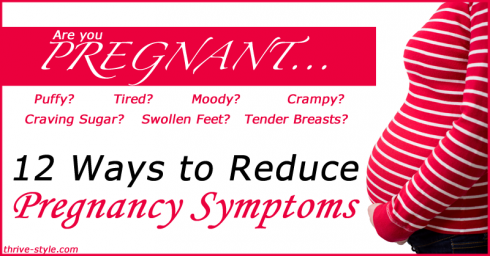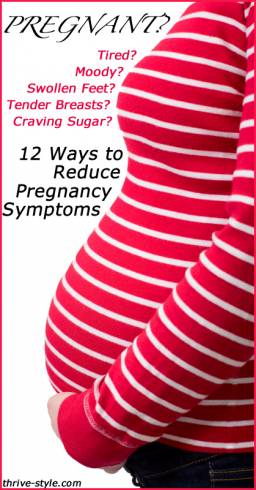When my sister was pregnant, she finished off the experience only being able to stuff her feet into size 10 flip flops (she started out at size 8.5). It’s true that she was two weeks overdue and had gained quite a bit of weight. It’s also true that she died shortly after she gave birth (which is unrelated to big feet, so don’t freak out). Over the years since this happened in 2003, I’ve done a lot of wondering (and I know my parents have too). We didn’t know definitively if something could have been done to prevent her death. We didn’t know if the way she was swollen at the end of her pregnancy wasn’t “normal” or if someone should have been pushier about addressing it with her doctor. Of course, Jen was majorly grouchy when she was pregnant (to everyone except me—and I lived 6 hours away at the time, so although we talked, I didn’t see her during the last leg of her pregnancy), so even if my parents had wanted her to address an issue with her doctor, she probably would not have done it.
The thing is, a lot of people gain a lot of weight during pregnancy. A lot of people get puffy. And grouchy. We sort of accept these things as “normal” when we hear about or experience them. However, I don’t think most people understand what is actually going on. After my sister’s pregnancy experience, I’ve done a lot of research to understand what is “normal” for pregnancy and why our bodies change in certain ways. I wanted to know what actually caused the changes because I didn’t believe that a symptom being “typical” also made it good or unpreventable. I wanted to know if being puffy during pregnancy was a risk factor for negative side effects. What I’ve found out is that it all depends on the person, the pregnancy, and the degree of symptoms. I don’t want to make a generalization about this because I think it’s important that after you understand where general symptoms come from, you work with your doctor to come to conclusions about your own pregnancy.
I honestly believe that my sister’s death couldn’t have been prevented, and that it had nothing to do with her weight gain or puffiness. However, that’s part of a much larger story than I want to tell today! Now that I’m pregnant, I’ve experienced the puffiness, the bigger boobs, and the swollen feet (it’s not out of control yet, but I’m not quite halfway through either). I’m not really moody, but my mood is definitely a bit more subdued than normal. I’m tired most of the time too.
I’d like to call a main culprit for these things out onto the carpet, and then contemplate what we might do to feel better.
Estrogen.
I’ve been reading a lot about estrogen dominance lately because I’m researching something for my father-in-law (I’ll tell you more about that later). I knew about this issue before because I’ve experienced it myself with melasma that was induced by long-term birth control use (I had almost completely resolved it through diet, and it has disappeared 100% since I got pregnant).
Estrogen dominance is induced by many things, and is not good for you because it can wreak havoc in your body and on your long-term health. It is also not exclusive to women, to menopause, or to pregnancy. The way estrogen is balanced in the body is through its ratio with progesterone. I won’t go too much into progesterone or the necessary ratio (you should discuss that with your doctor when you have it tested), but ultimately, if estrogen is too high or if progesterone is too low, estrogen dominance occurs.
Typical ways this can happen are through birth control use (synthetic), environmental exposures to xenoestrogens, consuming certain plants (phytoestrogens), obesity, a high stress level, and an out-of-balance diet (high in conventionally raised/produced foods). Estrogen dominance also happens naturally in the aging female, as the rate of progesterone produced decreases at a faster rate than estrogen production decreases (this is why it’s a bad idea to replace lost estrogen without replacing progesterone too!). There are other possible contributors too, but these are ones you can address relatively straightforwardly.
When you’re pregnant, your estrogen levels go through the roof. Your progesterone level increases too (if it didn’t, you’d have a miscarriage). It’s important during pregnancy for estrogen levels to increase, but at the same time, because of the magnitude of increase compared to the smaller increase of progesterone, symptoms of estrogen dominance occur (and this may be unpleasant).
- Estrogen encourages the body to retain fluid (Progesterone is a natural diuretic)
- Estrogen encourages the body to store fat (Progesterone encourages the body to use more fat as fuel)
- Estrogen can lead to symptoms of low blood sugar (Progesterone helps the body regulate blood sugar)
- Estrogen (unchecked by progesterone) leads to mood swings, fatigue, cramps, and tender breasts
You may recognize some of the symptoms of estrogen dominance as also being common during your pregnancy. It makes sense, right? Estrogen is high, relative to progesterone, during pregnancy. Because hormone changes during pregnancy are necessary in order to support the healthy pregnancy and birth, we don’t want to eliminate those changes. However, because there are so many ways estrogen dominance occurs that have nothing to do with pregnancy needs, we can address those factors with the hope that we’ll also (at least) tone down some of the symptoms you’re having. Honestly, I can’t promise you results because I don’t know exactly what you’ve been exposed to (or how much) or exactly what your hormone levels are. But I can tell you that the sources of estrogen we consume from external sources (not produced by our bodies) can be very high, and we also have quite a bit of control over our exposure to them.

Here are things you can do to decrease your external/unnecessary exposure to estrogens:
1. Eat grass fed, organic, and free range poultry and meats.
Conventionally raised cows and chickens are treated with antibiotics and hormones that act like estrogen and cause hormone disruption when you eat them.
2. Eat wild caught fish (and eat it twice a week or more).
Fish cause less of an impact on hormone balance when they’re wild caught (farm raised have issues due to living conditions and feed that contains hormone disruptors). Just make sure you’re eating the best sources of fish!
3. Consume only organic produce.
Conventionally grown produce is treated with large amounts of pesticides. These are known hormone disruptors, and produce from other countries can even contain pesticides that are banned in the US. Check out the Environmental Working Group’s lists of the Dirty Dozen and Clean Fifteen. With items on the Clean Fifteen list, you can wash the produce with vinegar and peel it to reduce pesticide exposure. The Dirty Dozen items should always be eaten in organic form only.
4. Avoid soy.
Soy contains a phytoestrogen. You may have heard of women increasing their soy intake during menopause to ease the symptoms, but the problem with this is that although it does increase low estrogen levels (the body produces less as we age), it does not affect progesterone. The ratio of estrogen to progesterone is thrown off by consuming phytoestrogens (thus symptoms of estrogen dominance get worse).
5. Drink filtered water.
Xenoestrogens from pharmaceuticals and environmental toxins make their way into the water supply. Reduce your exposure by drinking filtered water, or by drinking fresh organic vegetable juice for hydration.
6. Reduce or eliminate your exposure to environmental pollution.
Don’t live in cities (like LA). Buy an air purifier. Have plants in your home (they clean the air), and consider buying a salt lamp. Don’t walk barefoot on grass that has been treated with pesticides. Always take your shoes off in the house. Don’t swim in polluted water.
7. Reduce your use of plastic and never microwave it.
Plastic breaks down and xenoestrogens enter your body. Never reuse plastic water bottles (or avoid them altogether). Use glass containers for storing food, never heat plastic in the microwave (and better yet, get rid of your microwave).
8. Avoid any body care or hair care products that contain petrochemicals or dangerous synthetic substances.
Check out this source to find a list of ingredients you should avoid putting on or in your body (lotions, soaps, shampoos, etc.).
9. Avoid xenoestrogen solvents.
These enter your skin and are stored in fat cells. You should avoid alcohol, aldehydes, glycol, and ketones, found in things like nail polish, polish remover, carpet, glue, paint, cleaning products and more. Check labels and avoid exposure when you can! You can often find alternatives that are safer (like nail polish and paint)–you just have to look for them!
10. Manage your stress.
The stress response causes a rise in estrogen production. Learn techniques for deep breathing, relaxing, and coping that help to reduce your stress level.
11. Ensure adequate Magnesium and B6 intake.
These substances help to eliminate excess estrogen by neutralizing it. Ingest more magnesium and B6, and also decrease processed food and sugar intake (which deplete magnesium).
12. Decrease or eliminate caffeine intake.
Caffeine is associated with higher estrogen levels. Hopefully you’re not consuming too much during pregnancy anyway!
Bonus: Use Essential Oils!
Being pregnant has pushed me to explore natural ways to address my aches and pains and ickiness… and I’m so thrilled with the results. Everything from sugar cravings to headaches to insomnia to back pain to allergies… has been on my success list for using essential oils. If you want to learn more or just chat about oils, join my essential oils facebook group! There are no rules there except that you have to be nice, and you can’t solicit people. C’mon over—I am a stickler for high quality oils (especially during pregnancy!), but you’re welcome to join regardless of whether or not you’re on my Young Living team.
After reading this list of things to avoid, you may feel like your next best move is to just move into a bubble (or under a rock in the wilderness) and just stay there! Of course you cannot avoid all sources of estrogen, but you can choose the things that are reasonable for you to do. Food, water, use of plastic, cleaning supplies, body/hair care products, and stress are areas of your life where you can quite simply take an inventory of what you’re doing and make a list of things you can do better. Don’t get scared or overwhelmed, just tackle one thing at a time.
Not only might you feel better while you’re pregnant, but you’ll set yourself up to be healthier in the long-term and you’ll set your baby up for that too!
Please +1 and comment below! What were your worst pregnancy symptoms? How did you deal with them?


Im sorry to hear about the loss of your sister. I appreciate this article greatly. We lost my mom to a rare form if breast cancer in November of 2012. My dad and I believe it had to do with a lot of environmental issues where they lived. The water is nasty and heavily treated. My mom would take an hour long bath EVERY night. Since her passing, my father along with myself and my family have made strong efforts to live healthier life styles. We make most of our own personal care products (shampoo etc). I do not use even naturl deodorants because they block the pores that release bodily toxins.
Sorry to babble! I love this article and wishmore people would realize all these tthings; especially pregnant women!
Thank you for sharing!
With my first pregnancy i had NO symptoms. I got a lot of stretch marks, but that was it! This time around i had nausea for the first 20 weeks. Im past that and have no other issues. Ive never had swelling issues, but i dont drink carbonated drink and take in plenty of water. I dont know if its luck or life style, but im thankful for the ease in my pregnancies!
Ashley, you are not babbling, I enjoyed your share. I’m sorry for the loss of your mother. She must have been an amazing woman because she taught you great things with her passing as I’m sure she did in life. Blessings my friend …
I am currently pregnant with my 3rd child and I have Polycystic Ovarian Syndrome. I have never had a problem with estrogen only with high levels of progesterone. During my pregnancies I have always had severe morning sickness and with this one I am vomiting every morning. My doctors have run test after test and cannot come up with anything. It is making my pregnancy miserable. I do everything on your list and am very picky about what goes in and on my body. I will be trying the salt lamp idea, I have been wanting one for awhile now and would be a great air purifier. I thank you for this article because it does make me feel better to know that other ladies have problems in pregnancy, too.
ok-read “the magnesium miracle”.
I’m on preg #2…1st preg was awful with morning sickness lasting into month 4…this time around…ironically, I changed my diet & lifestyle almost mirroring these recommendations above & when I started having a little nausea, I began taking magnesium supplements (natural calm, magnesium oil on the skin, epsom salt baths…and now, ionic liquid magnesium) in a day morning sickness was gone never to return. I haven’t had any symptoms of pregnancy save for light headedness due to the extra blood. I feel amazing! fyi, I have breast hypoplasia (a symptom I share with most pcos sufferers)
my first pregnancy was fraught with horrible discomfort and every symptom…
this pregnancy, I did (had been doing) everything on the list, save the extra magnesium…
once I supplemented-I’ve been totally amazed how great I feel.
I just read “the magnesium miracle” and it talks about pcos
you may really learn alot about how deficiencies in magnesium can create conditions like pcos, morning sickness, fatigue, etc.
hope this helps!
feel better!
These ways to retrieval for survivors of misuse is able to assist you to start reconstruct your own life at a method that is fair and also manage the fluctuations. https://donaldandivanatrumpdivorcepapers.wordpress.com